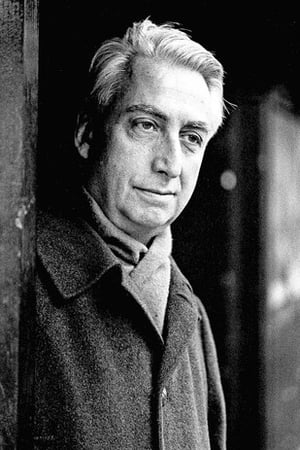Personal Info
Known For Writing
Known Credits 8
Gender Male
Birthday November 12, 1915
Day of Death March 26, 1980 (64 years old)
Place of Birth Cherbourg, Manche, France
Also Known As
- -
Content Score
100
Yes! Looking good!
Login to report an issue
Biography
Roland Gérard Barthes (12 November 1915 – 26 March 1980) was a French literary theorist, essayist, philosopher, critic, and semiotician. His work engaged in the analysis of a variety of sign systems, mainly derived from Western popular culture. His ideas explored a diverse range of fields and influenced the development of many schools of theory, including structuralism, anthropology, literary theory, and post-structuralism.
Barthes is perhaps best known for his 1957 essay collection Mythologies, which contained reflections on popular culture, and 1967 essay "The Death of the Author," which critiqued traditional approaches in literary criticism. During his academic career he was primarily associated with the École des Hautes Études en Sciences Sociales (EHESS) and the Collège de France.
Roland Barthes was born on 12 November 1915 in the town of Cherbourg in Normandy. His father, naval officer Louis Barthes, was killed in a battle during World War I in the North Sea before Barthes's first birthday. His mother, Henriette Barthes, and his aunt and grandmother raised him in the village of Urt and the city of Bayonne. In 1924, Barthes' family moved to Paris, though his attachment to his provincial roots would remain strong throughout his life.
Barthes showed great promise as a student and spent the period from 1935 to 1939 at the Sorbonne, where he earned a licence in classical literature. He was plagued by ill health throughout this period, suffering from tuberculosis, which often had to be treated in the isolation of sanatoria. His repeated physical breakdowns disrupted his academic career, affecting his studies and his ability to take qualifying examinations. They also exempted him from military service during World War II.
His life from 1939 to 1948 was largely spent obtaining a licence in grammar and philology, publishing his first papers, taking part in a medical study, and continuing to struggle with his health. He received a diplôme d'études supérieures (roughly equivalent to an MA by thesis) from the University of Paris in 1941 for his work in Greek tragedy.
In 1948, he returned to purely academic work, gaining numerous short-term positions at institutes in France, Romania, and Egypt. During this time, he contributed to the leftist Parisian paper Combat, out of which grew his first full-length work, Writing Degree Zero (1953).
In 1952, Barthes settled at the Centre National de la Recherche Scientifique, where he studied lexicology and sociology. During his seven-year period there, he began to write a popular series of bi-monthly essays for the magazine Les Lettres Nouvelles, in which he dismantled myths of popular culture (gathered in the Mythologies collection that was published in 1957). Consisting of fifty-four short essays, mostly written between 1954 and 1956, Mythologies were acute reflections of French popular culture ranging from an analysis on soap detergents to a dissection of popular wrestling. Knowing little English, Barthes taught at Middlebury College in 1957 and befriended the future English translator of much of his work, Richard Howard, that summer in New York City. ...
Source: Article "Roland Barthes" from Wikipedia in English, licensed under CC-BY-SA 3.0.
Roland Gérard Barthes (12 November 1915 – 26 March 1980) was a French literary theorist, essayist, philosopher, critic, and semiotician. His work engaged in the analysis of a variety of sign systems, mainly derived from Western popular culture. His ideas explored a diverse range of fields and influenced the development of many schools of theory, including structuralism, anthropology, literary theory, and post-structuralism.
Barthes is perhaps best known for his 1957 essay collection Mythologies, which contained reflections on popular culture, and 1967 essay "The Death of the Author," which critiqued traditional approaches in literary criticism. During his academic career he was primarily associated with the École des Hautes Études en Sciences Sociales (EHESS) and the Collège de France.
Roland Barthes was born on 12 November 1915 in the town of Cherbourg in Normandy. His father, naval officer Louis Barthes, was killed in a battle during World War I in the North Sea before Barthes's first birthday. His mother, Henriette Barthes, and his aunt and grandmother raised him in the village of Urt and the city of Bayonne. In 1924, Barthes' family moved to Paris, though his attachment to his provincial roots would remain strong throughout his life.
Barthes showed great promise as a student and spent the period from 1935 to 1939 at the Sorbonne, where he earned a licence in classical literature. He was plagued by ill health throughout this period, suffering from tuberculosis, which often had to be treated in the isolation of sanatoria. His repeated physical breakdowns disrupted his academic career, affecting his studies and his ability to take qualifying examinations. They also exempted him from military service during World War II.
His life from 1939 to 1948 was largely spent obtaining a licence in grammar and philology, publishing his first papers, taking part in a medical study, and continuing to struggle with his health. He received a diplôme d'études supérieures (roughly equivalent to an MA by thesis) from the University of Paris in 1941 for his work in Greek tragedy.
In 1948, he returned to purely academic work, gaining numerous short-term positions at institutes in France, Romania, and Egypt. During this time, he contributed to the leftist Parisian paper Combat, out of which grew his first full-length work, Writing Degree Zero (1953).
In 1952, Barthes settled at the Centre National de la Recherche Scientifique, where he studied lexicology and sociology. During his seven-year period there, he began to write a popular series of bi-monthly essays for the magazine Les Lettres Nouvelles, in which he dismantled myths of popular culture (gathered in the Mythologies collection that was published in 1957). Consisting of fifty-four short essays, mostly written between 1954 and 1956, Mythologies were acute reflections of French popular culture ranging from an analysis on soap detergents to a dissection of popular wrestling. Knowing little English, Barthes taught at Middlebury College in 1957 and befriended the future English translator of much of his work, Richard Howard, that summer in New York City. ...
Source: Article "Roland Barthes" from Wikipedia in English, licensed under CC-BY-SA 3.0.
Known For
Writing
|
|||
|
Acting
|
||||||
|
||||||
|
||||||
|
Crew
|


